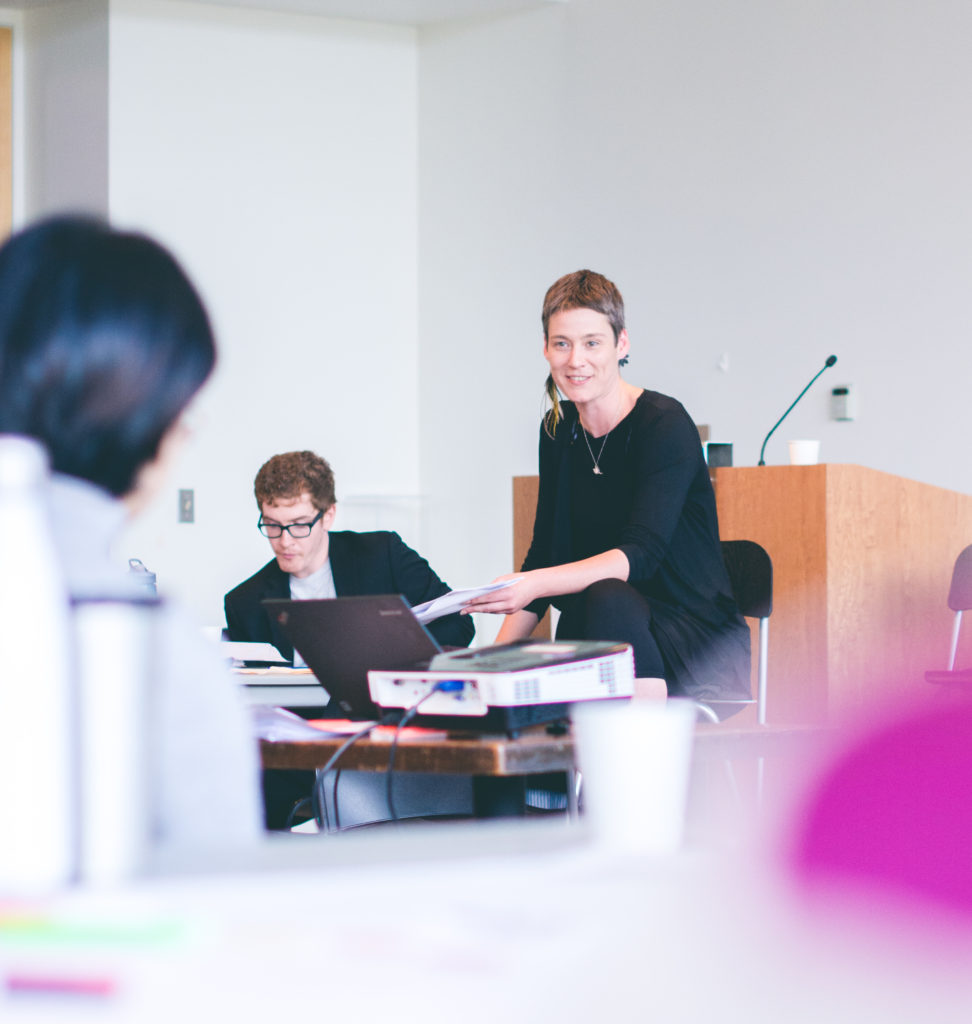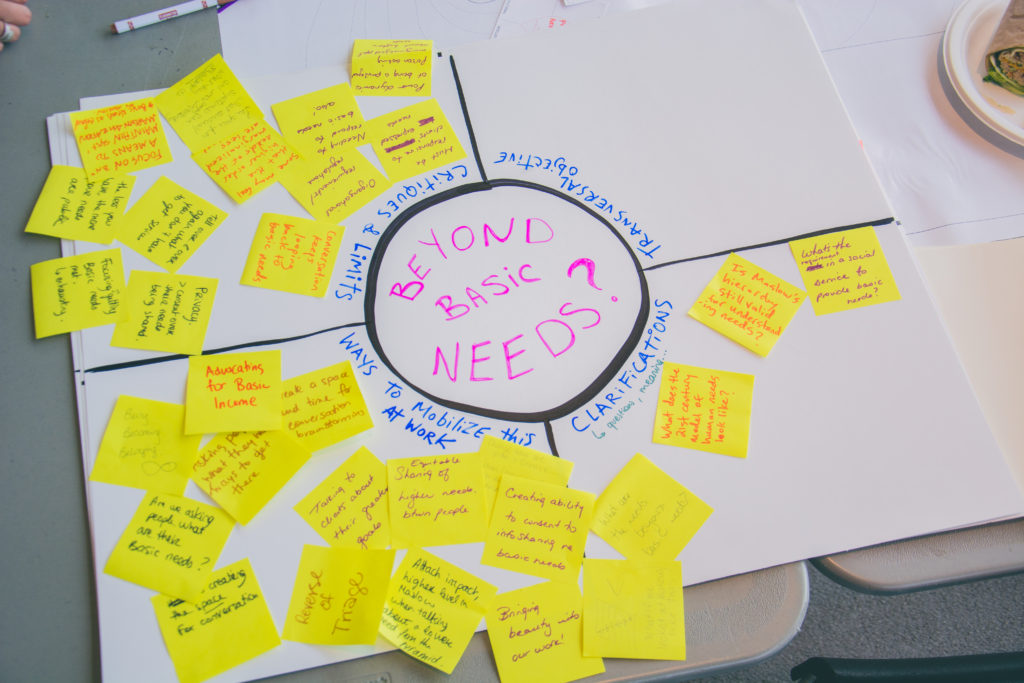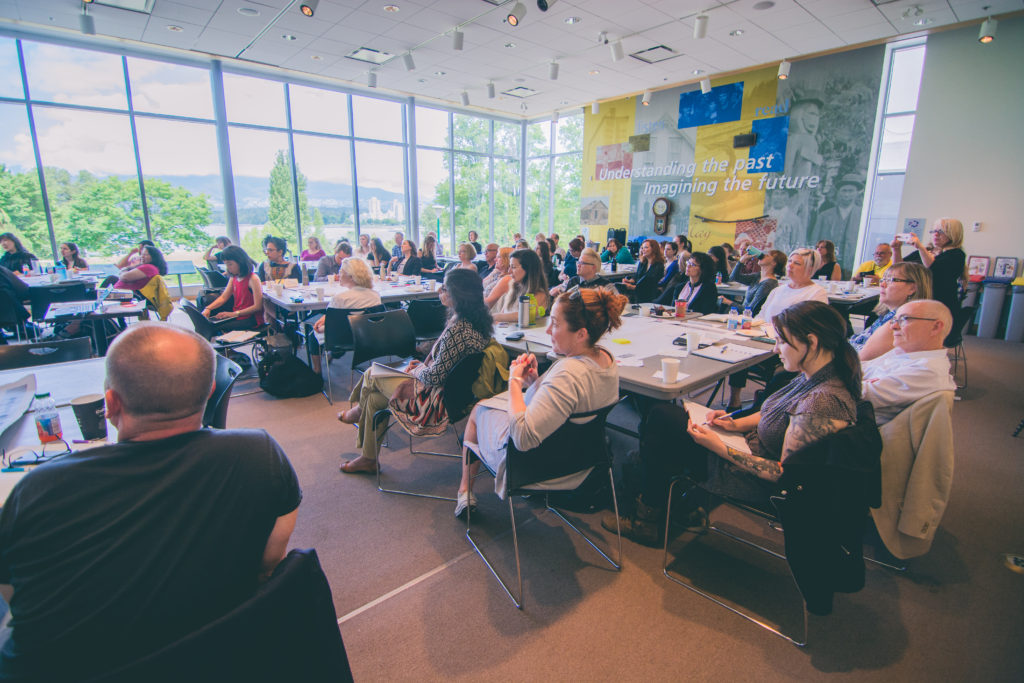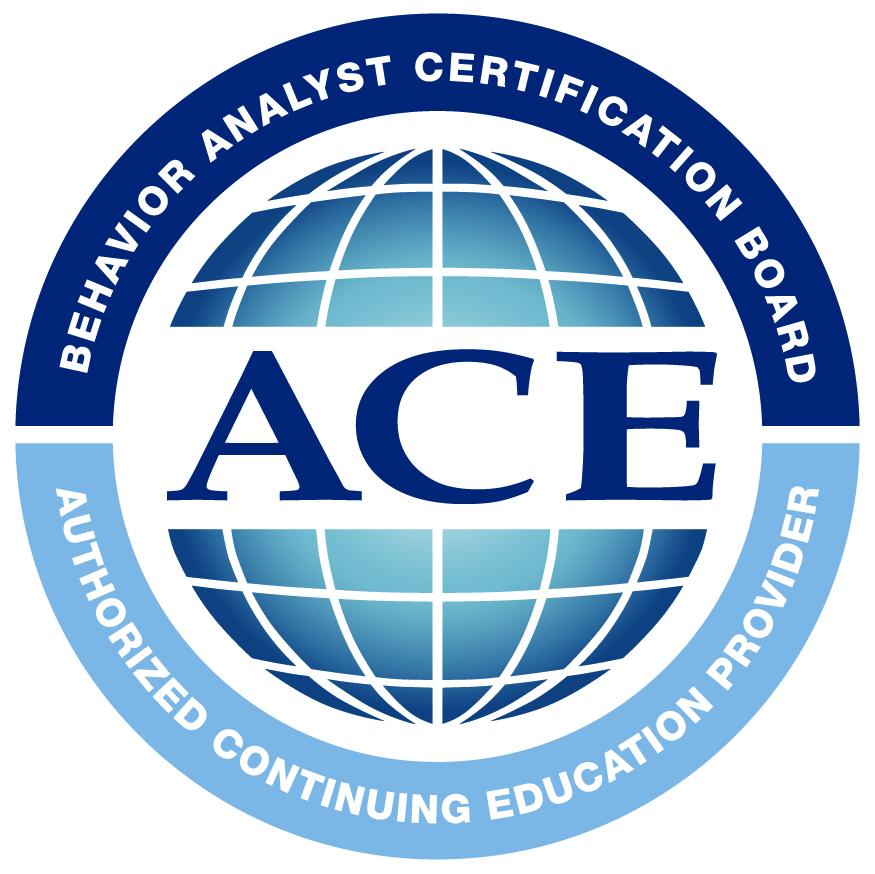How do we build better lives?
Learnings from a workshop with Montreal-based Exeko
Contributed by Krista Greig and Nicole Markwick
Photo courtesy of Andronicus Wu of BACI
On Monday, June 12th, 2017, nearly 70 creative minds from local service organizations gathered to listen and dialogue with members of Exeko, a Montreal-based organization working toward greater inclusion through creativity. Exeko begins with a core posture: the presumption that everyone can analyze, act, and think, and that this is an important part of both becoming and transforming oneself actively in society.
This assertion had the crowd thinking: What do we consider to be intelligence? Is it based on IQ tests? Standardized tests in school? Or is it the degree to which we can fit into existing norms? We know, for example, that the hand with which one writes was considered to be a marker of intelligence until recently. According to Exeko, we often decide intelligence based on these narrow definitions – and this constricts possibility. It automatically closes the doors to opportunities, conversations, and potential.
The result of our narrow definitions of intelligence is a form of social exclusion, an outcome that Exeko calls “intellectual marginalization”. Just like exclusion based on class, ethnic background, or financial status, intellectual marginalization means that we underestimate different capabilities, and the talented people who have these abilities. Audience members discussed what it would mean if we assumed that all people have different types of intelligence, and that these different types of intelligence are equally important.
With help from Exeko co-founder Nadia Duguay and her team, attendees also talked about the ways that creativity and culture can be used to promote different intelligences. But they didn’t stop there:
As humans, we are thinkers on a constant journey. We search for meaning in our day-to-day lives. Exeko suggested that if we assume all people are intelligent, we must also believe that all people search for and deserve a life in which more than their basic needs are met. This led the group into a period of workshopping where participants gathered at tables to discuss topics of their choosing, among them being the topic, “Beyond Basic Needs?”
Photo courtesy of Andronicus Wu of BACI
The presumption of equal intelligences and of the need for a meaningful life is undeniably intertwined. We are all capable and all desire what lies ahead. Meaning is a personal undertaking. Critical reflection allows us to better understand our circumstances and get control over them, and to envision other possibilities and paths. And when all of us are part of the conversation we move beyond personal transformation to social transformation. The questions that arose from this event with Exeko were provocative and inspirational ones. Their invitation to think beyond basic needs and infuse our everyday practices with art and philosophy still resonates with participants.
How can we live out these concepts in our everyday lives to bring them to fruition? We can start by assuming an equality of intelligences, by seeing the other as an equal and not as less or more than us. Perhaps more practically, we can look past basic needs of those we serve or work with and go a step further by providing them with more fulfillment than just basic needs. Ultimately, these concepts become reality when we look past the presumption of intelligence and needs imposed by the world, and begin to look at the intelligence and desire for meaning that lies within each person.













